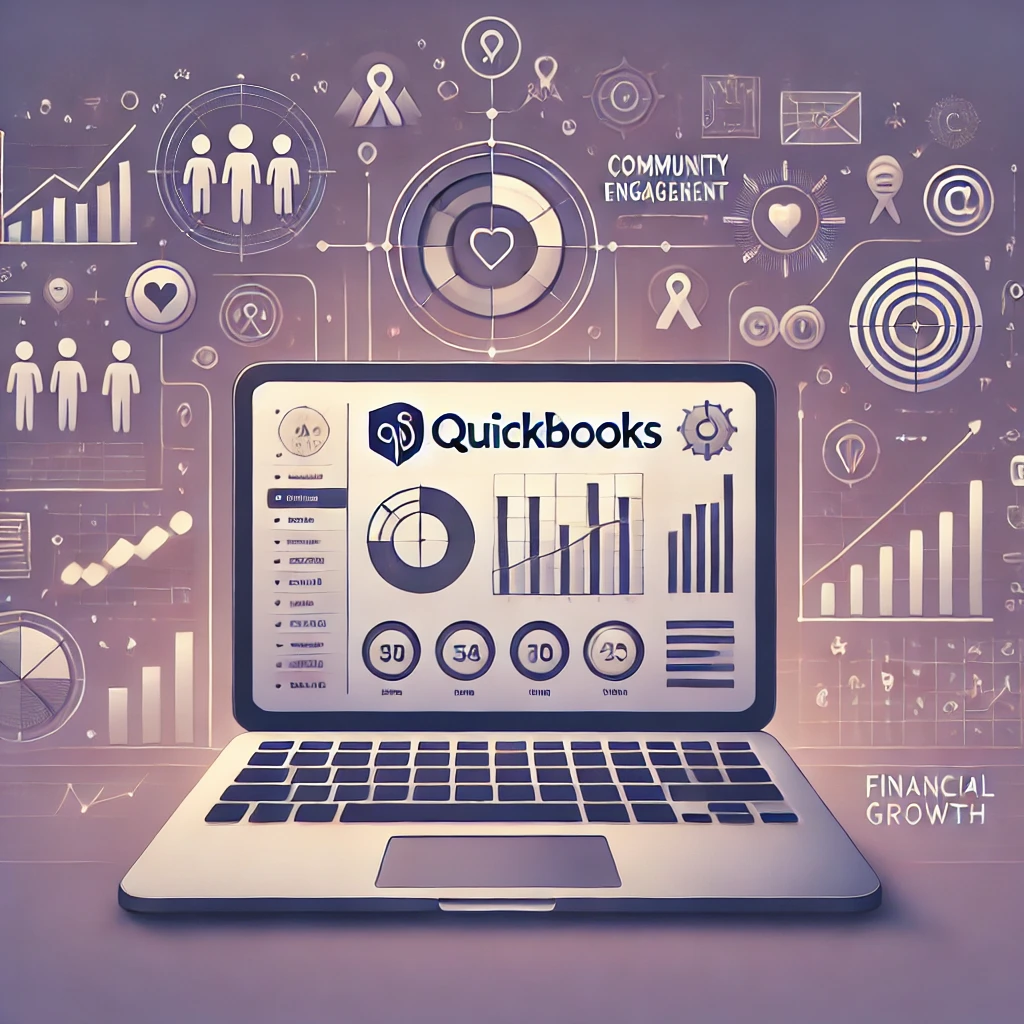1. Setting Up QuickBooks for Your Organisation
a) Choosing the Right Version
QuickBooks offers different versions, including QuickBooks Online and QuickBooks Desktop. For charities and social enterprises, QuickBooks Online is often the best choice as it allows multiple users, cloud access, and integration with donation platforms.
b) Customising Your Chart of Accounts
- Structure your chart of accounts to reflect your organisation’s funding sources, expenses, and projects.
- Set up restricted and unrestricted funds for better fund management.
- Create specific income categories such as grants, donations, and fundraising revenue.
c) Setting Up Classes and Locations
- Use Classes to track different projects, departments, or programmes.
- Use Locations to separate financial activity across multiple sites or regions.
2. Recording Income and Donations
a) Tracking Different Income Streams
- Use Invoices for grant funding that requires requests for payment.
- Record donations through Sales Receipts to differentiate between one-time and recurring donations.
- Integrate QuickBooks with donation platforms like PayPal, Stripe, or JustGiving.
b) Managing Restricted and Unrestricted Funds
- Create fund tracking categories to separate income based on donor restrictions.
- Use the Class feature to allocate specific expenses to restricted funds.
c) Automating Recurring Donations
- Set up recurring transactions for regular donations and membership fees.
- Use QuickBooks’ bank feeds to automatically categorise recurring income.
3. Expense Management and Budgeting
a) Recording Expenses and Payments
- Use Bills for vendor payments and grants received.
- Set up Recurring Expenses for regular costs such as rent and utilities.
b) Allocating Costs to Projects
- Use Classes and Tags to allocate expenses to specific projects.
- Assign timesheets for staff working on multiple projects to track costs accurately.
c) Budgeting and Forecasting
- Use QuickBooks’ Budgeting Tool to set up annual budgets.
- Compare budget vs actual reports to monitor financial performance.
- Export reports for funders to demonstrate financial accountability.
4. Bank Reconciliation and Cash Flow Management
a) Automating Bank Feeds
- Connect your bank account to QuickBooks for automatic transaction downloads.
- Use rules to categorise transactions and reduce manual data entry.
b) Performing Regular Bank Reconciliations
- Reconcile your bank and credit card accounts monthly to ensure accuracy.
- Use the Reconciliation Tool to match transactions and detect discrepancies.
c) Cash Flow Forecasting
- Generate cash flow statements to monitor your organisation’s financial health.
- Use QuickBooks’ cash flow planner to predict future cash flow gaps and surpluses.
5. Financial Reporting for Funders and Compliance
a) Generating Custom Reports
- Use QuickBooks' Profit & Loss reports for financial summaries.
- Create Statement of Financial Position (Balance Sheet) reports for funders.
- Generate fund-specific reports to track restricted vs unrestricted funds.
b) Compliance and Audit Preparation
- Use the Audit Log to track changes made in QuickBooks.
- Ensure transactions are properly categorised for accurate financial statements.
- Export reports in CSV or PDF formats for grant reporting and compliance.
6. Integrating QuickBooks with Other Tools
a) Payroll and Staff Management
- Integrate QuickBooks Payroll to manage salaries, PAYE, and pensions.
- Use Timesheets to track staff and volunteer hours for project costing.
b) Fundraising and CRM Software
- Sync QuickBooks with CRM systems like Salesforce or Donorbox.
- Automate donation records by linking fundraising platforms.
c) Grant Management and Expense Tracking
- Use third-party apps like Expensify for receipt tracking.
- Integrate QuickBooks with grant management software to track funding applications.
7. Best Practices for QuickBooks Success
- Regularly update transactions to keep accounts accurate.
- Run financial reports monthly to stay on top of your financial health.
- Ensure staff and volunteers are trained on using QuickBooks.
- Use automation features to save time on repetitive tasks.
- Work with an accountant to ensure compliance and maximise efficiency.
Conclusion
Using QuickBooks effectively can help your social enterprise or charity manage its finances more efficiently, stay compliant, and provide funders with clear financial reports. By customising your setup, automating processes, and integrating QuickBooks with other essential tools, you can free up more time to focus on your organisation’s mission.
Need help setting up or maximising QuickBooks? North West Numbers CIC can support you with training and financial guidance tailored to your organisation’s needs.
Visit www.northwestnumberscic.co.uk to learn more.
